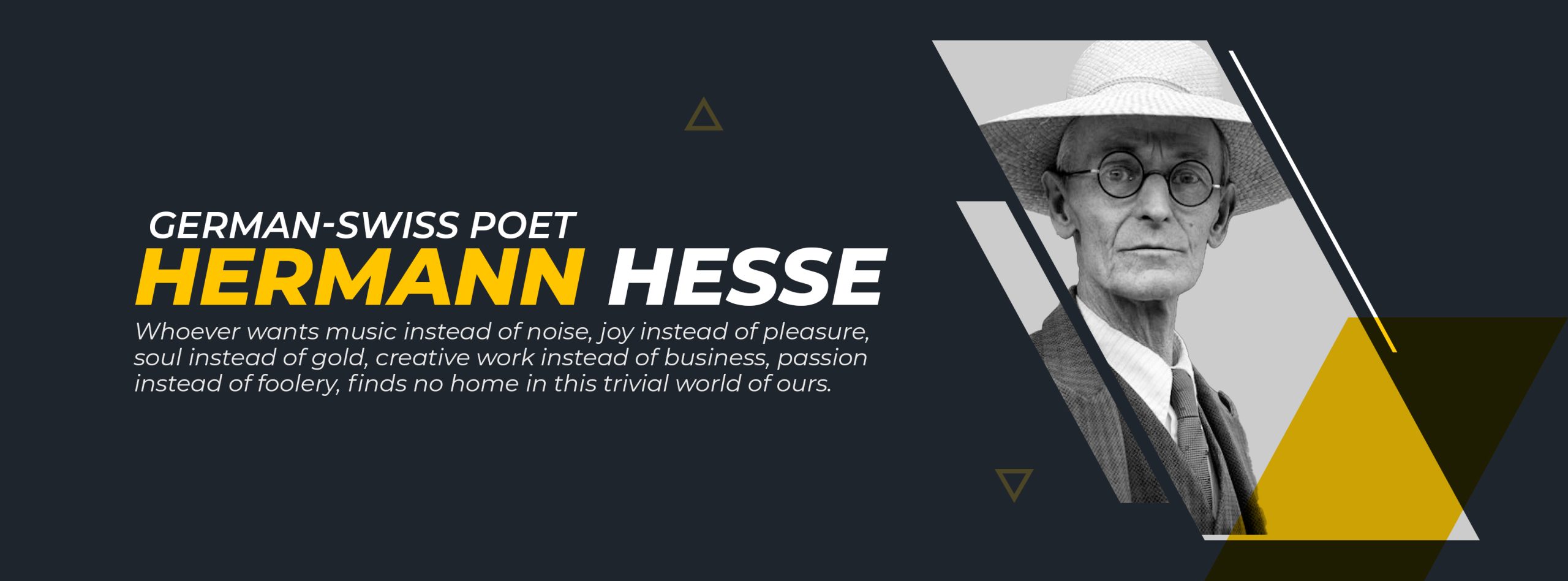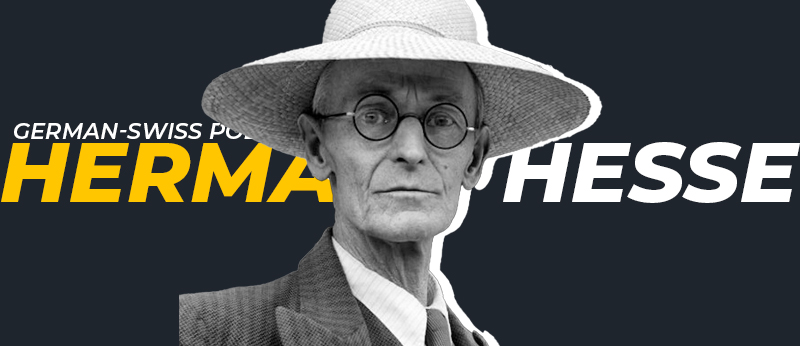Top 10 most inspiring quotes by Hermann Hesse
- If you hate a person, you hate something in him that is part of yourself. What isn’t part of ourselves doesn’t disturb us.
- Whoever wants music instead of noise, joy instead of pleasure, soul instead of gold, creative work instead of business, passion instead of foolery, finds no home in this trivial world of ours.
- Words do not express thoughts very well. They always become a little different immediately after they are expressed, a little distorted, a little foolish.
- I have been and still am a seeker, but I have ceased to question stars and books; I have begun to listen to the teaching my blood whispers to me.
- Without words, without writing and without books there would be no history, there could be no concept of humanity.
- That is where my dearest and brightest dreams have ranged — to hear for the duration of a heartbeat the universe and the totality of life in its mysterious, innate harmony.
- I live in my dreams — that’s what you sense. Other people live in dreams, but not in their own. That’s the difference.
- It is not for me to judge another man’s life. I must judge, I must choose, I must spurn, purely for myself. For myself, alone.
- Oh, love isn’t there to make us happy. I believe it exists to show us how much we can endure.
- Often it is the most deserving people who cannot help loving those who destroy them.

Hermann Hesse was a German-born Swiss writer and Nobel laureate who lived from 1877 to 1962. He is best known for his novels and works of philosophical and spiritual introspection that explore themes of self-discovery, individualism, and the search for meaning in life.
Hesse was born on July 2, 1877, in Calw, Germany. He grew up in a strict religious household, which greatly influenced his early writings. However, as he matured, Hesse began to question and challenge the traditional values and beliefs imposed upon him.
In his early career, Hesse worked as a bookseller and spent much of his free time reading and writing. His first major success came with the publication of his novel “Peter Camenzind” in 1904, which established him as a prominent figure in German literature. He went on to write several other critically acclaimed novels, including “Demian” (1919), “Siddhartha” (1922), and “Steppenwolf” (1927).
Hesse’s works often delved into themes of spiritual and psychological exploration, drawing from various religious and philosophical traditions, including Buddhism, Hinduism, and psychoanalysis. He believed in the importance of individual freedom and advocated for self-exploration and self-realization.
In 1946, Hesse was awarded the Nobel Prize in Literature for his “inspired writings, which, while growing in boldness and penetration, exemplify the classical humanitarian ideals and high qualities of style.” He spent the later years of his life in Switzerland, where he continued to write and reflect on the human condition until his death on August 9, 1962.
Hermann Hesse’s works continue to be celebrated for their profound insights into the complexities of human existence and their timeless relevance to readers around the world.
👉Listen to the best music from all over the world at www.liveonlineradio.net #Hermann_Hesse #quotes #FM #Online_radio #radio #live_online_radio #live #world_radio





